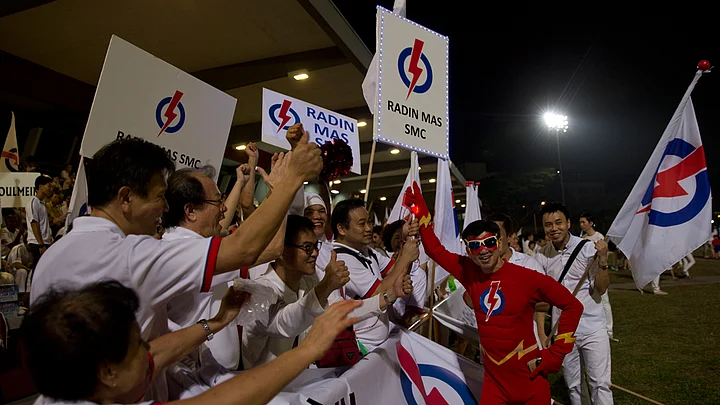For Indians living in Singapore, the contrast was astounding. There were no politicians with loud speakers on open-topped vehicles, no spontaneous traffic jams to allow face-painted morons dance around on streets and no bulk text messages carrying political advertisements. These are two democracies that inherited laws from the British and yet exist on extreme sides of the spectrum – one manic, one muted.
All it took was less than 24 hours. Friday was declared a public holiday in Singapore. Citizens went to the polls, votes were counted and the winner announced by midnight. Over the weekend, Singaporeans will gather in local hawker centres or plush restaurants to discuss, denigrate or be delighted. Just like everything else in the wealthy island nation known for its cleanliness and efficiency, a task was completed with no drama and no chaos, all thanks to strategic planning.
Staying Away from Speculation
Campaigning was for nine days only. The election date was chosen for Friday, September 11, before a week-long school holiday. Schools were used as polling booths and counting centers. A weekend before also meant that the Singapore Formula One Grand Prix from Sept 18-20 would continue undisturbed.
Opinion polls are banned, so there’s no scope of watching TV news shows of anchors screaming at, headshots on six windows about who’s leading, who’s losing. The nation may want to know but cannot. “It only leads to more people arguing and speculating,” a taxi driver told me. “No need for that.”
The campaigning was systematic where candidates booked their slots at places for respective rallies. During one rally, a long line of silent smiling faces stood with pen and paper at lunch time – to take autographs of a candidate.
Electoral Process
A lunch time rally is also very significant in Singapore. There was only one venue for it – the UOB Plaza promenade around a modern twin-tower skyscraper that hosts many financial corporations. It is also the venue where Lee Kuan Yew (LKY), Singapore’s founding prime minister who died this year, is known to have given some of his very prominent speeches.
While the Opposition members had a rally there one afternoon, the ruling PAP (LKY’s People’s Action Party) which has been in power since independence 50 years ago booked it for the next day.
The other interesting thing -one also votes for a group, not an individual. You vote for a GRC, Group Representation Constituency, and if that group wins, all members of that unit (between 3-6 MPs) get voted into the parliament. What the city-state did do for the first time this year was a “sample count”. Two hours before midnight when the results were to be announced, they provided a sample to indicate which GRC could be leading in which council.
Drawing Parallels
- India and Singapore, two democracies that inherited laws from the British, have very different electoral processes
- Opinion polls are banned in Singapore so there’s no scope of speculating and whipping up views, as to who is winning, who’s not
- All citizens participate in elections since voting is mandatory, eligible voters need to give a formal explanation for abstinence
- Political discourse right before polls free from mudslinging and taking jibes at political adversaries
Sans Political Jibes
Unlike India’s many vociferous political commentators, many of whom are quick to opine on political misgivings but too lazy to line up and vote, Singaporeans do not have an option. Voting is compulsory for all citizens. If you don’t vote, your name is removed from the eligible voters list and you have to fill a form explaining why you should be exempted. You are fined if your reason is not good enough.
In Singapore, defined by some as a democracy-run-with-a-whip, the level of mudslinging among candidates during campaigning was zero - respectable and refined. That’s what happens when people who run the country are well educated and among the best paid in the world. Name calling such as “chai wala” and “pappu” that lead to Whatsapp chain messages with Narendra Modi himself joking “you will not have to go anywhere else for entertainment” are unimaginable.
At the most, dignified comebacks score on social media and get lauded. For example when one contestant in Singapore likened the ruling party to the sinking Titanic, a candidate from PAP politely replied on Facebook - “The Titanic sank… but the PAP cruised over 50 years under a captain. All onboard are safe.”
(Kavita Chandran is a journalist with Reuters based in Singapore. All views expressed are her own.)
(At The Quint, we question everything. Play an active role in shaping our journalism by becoming a member today.)
